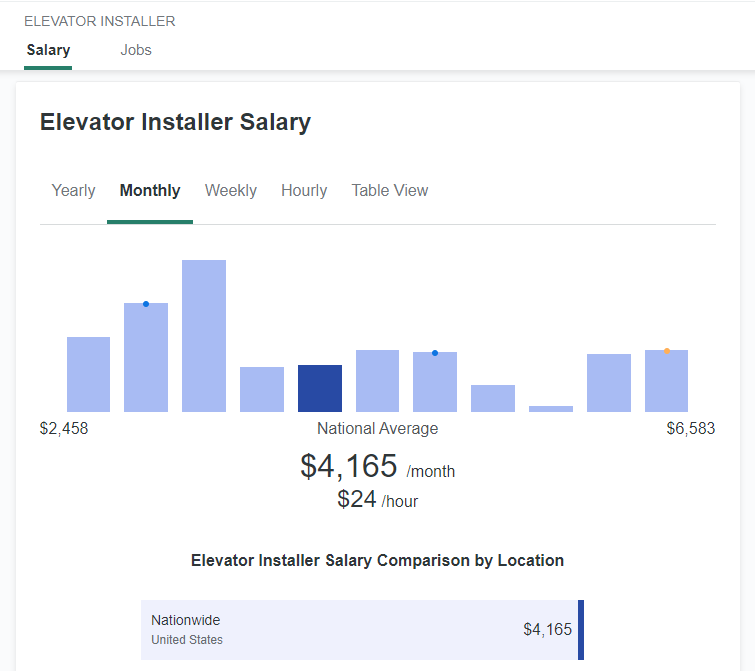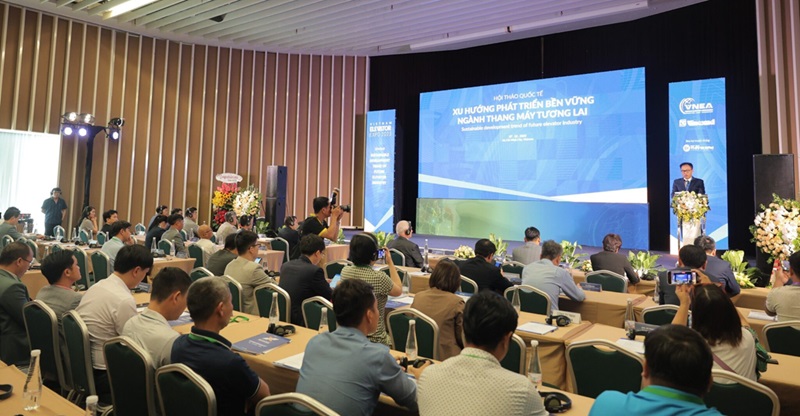
EM – The car mechanic in my village, after a few years of working and apprenticed at a large auto repair garage, returned to his hometown and opened a bicycle and motorbike repair shop. In a few more years, his wife also learned the trade from him and even the son who now in high school knew how to patch a tube and change a basic tire. Is it true that a technical career only needs to be “training on job” to be “good to go”?
Later, his son decided to study a technical college at university, the neighbors jokingly said: “Just stay at home to study your father’s trade and you’ll be good to go, no need to go to school, you will end up just like him.” The guy who said “Educated is better” sounded confident and sure.
Decree 90/2019/ND-CP stipulates that enterprises must pay 7% higher wages for trained workers than the regional minimum wage (this decree is effective until July 1, 2022). That is part of the proof for the saying “Educated is better”.
Specifically, in Clause 2, Article 5 of Decree No. 90/2019/ND-CP stipulating the regional minimum wages for employees working under labor contracts, specifically stating that employees have undergone vocational training includes:
a) Persons who have been granted vocational certificates, vocational diplomas, professional secondary school diplomas, vocational high school diplomas, college degrees, general university certificates, university degrees, bachelor’s degrees, master’s degrees, a doctoral degree as prescribed in Decree No. 90-CP of November 24, 1993 of the Government providing for the framework structure of the national education system, the system of diplomas and certificates in education and training;
b) The person who has been granted a professional secondary school diploma, a vocational training diploma, a college diploma, a university diploma, a master’s degree, or a doctoral degree; diplomas and certificates of vocational education; higher education diplomas and continuing education diplomas and certificates according to the provisions of the Education Law 1998 and the Education Law 2005;
c) Persons who have been granted certificates under the continuing vocational training program, primary vocational certificates, vocational intermediate diplomas, vocational college diplomas or have completed an apprenticeship program under the prescribed apprenticeship contracts at the Law on Vocational Training;
d) Persons who have been granted national vocational skills certificates according to the provisions of the Employment Law;
e) Persons who have been granted diplomas or certificates of vocational education training at elementary, intermediate and college levels; regular training and other vocational training programs as prescribed in the Law on Vocational Education;
f) The person who has been granted a diploma of higher education training as prescribed in the Law on Higher Education;
g) Persons who have been granted diplomas and certificates of foreign training institutions;
h) Persons who have received vocational training or self-study by enterprises and are inspected and arranged by enterprises to do jobs requiring vocational training.
This regulation is issued with the goal of supporting employees when they are often weaker than the employers in negotiating salary, on the other hand, I think it is a recognition of their ability to work after training.
But many people also say, studying for money and eventually graduating from school is just in theories, some general “tricks” of practice that can’t be applied specifically to any profession.
Another point of view asserts that self-learning courses are just follow-up experiences, in order to “standardize” they must have proper training and full certification.
Agreeing with everyone, I don’t see any wrong views, each point out an aspect of reality.
The car repairmen in the village can be highly skilled, plus they are familiar with people from the same village, so they are always welcoming. But to make sure that the repair technique is accurate or not, the replacement equipment is of good quality, no one dares to guarantee it. Instead of technical regulations, technical standards seem to be the only standards that apply in this case the “approximately” standard, a concept that has appeared in your Elevator Magazine.
Apprentices, in fact, when they have mastered their skills, can participate in competitions for certification of competence suitable to their professions; people who have been well trained in the background knowledge will continue to learn based on practice at specific jobs. From different starting points, the journey of vocational training and forging is different, but in the end they are both skilled and have standard certificates of vocational competence, should that be a more appropriate outcome for the debates that have been raising controversy in the press and the fire of educational administrators?
Let’s take the Information Technology (IT) industry as an example. Up to this point, IT is still in the top of the professions with the highest income and the starting income depends a lot on work experience and internationally valid certifications. CCNP (Cisco Certified Network Professional) holders include all the skills and knowledge needed to plan, deploy, verify, and troubleshoot local and wide area enterprise networks. Normally, CCNP holders usually have 8 other related certifications and the starting salary is around 118 thousand US dollars a year. If the engineer, IT bachelor holds the Certificate of CISA (Certified Information System Auditor) of ISACA designed for those responsible for the assessment, control, monitoring of an organization’s IT and business systems, the level of their starting salary can go up to 132,000 USD/year… These intuitive numbers show that the higher the skill, the bigger the income.

Going back to Decree 90/2019/ND-CP which has expired as of July 1, 2022 and the replacement Decree 38/2022/ND-CP no longer mentions the criterion of paying 7% higher salary for trained employees. I think that the change is consistent with the cognitive ability of the society (employees and employers) and along with that, the skills of assessing capacity and negotiating salary of employees have been better than before.
Now let’s look at the elevator industry.
According to the statistics of ZipRecruiter – an American job brokerage unit (Website has more than 200,000 visits per day), the average salary of elevator installers in more than 50 states in the US is in the range of $2,400 to $6,500 every month, along with that, each state in the US has different regulations related to the capacity and types of certificates of competence of workers in this elevator industry. (Read more: The problem of human resource standardization in countries around the world and any reference for Vietnam’s elevator industry?)

In Vietnam, there are currently no regulations on qualifications or certificates of competence for elevator technicians. Businesses can recruit from unskilled workers – untrained, inexperienced and accept quick teaching in a “hands-on” style. There are also businesses that require graduation from vocational secondary schools or higher. And the salary for a full-time elevator installation position is in the range of 7-10 million VND, possibly higher in big cities. Obviously, when the elevator is still an emerging industry, it is not possible to build professional skills standards with commensurate income levels. But if we don’t do it now, we will fall behind.
Elevator technicians in different businesses shared this. There are businesses that “pay a hard salary to get a place to go” and pay according to the volume of work (2 – 6 million VND/stop multiplied by the number of floor). There are also many “micro” businesses that only pay part of the amount without a fixed salary and usually these are “seasonal” hired workers. This is also quite common in Vietnam and the ability of these workers is vary!
No wonder that on an elevator forum, which gathers many business managers and industry workers, there are also many posts sharing the “pain” of businesses when hiring a “sloppy” installer. “. Right below those posts will find many comments about quality commensurate with price:

A few “expose” comment on article about careless installer
Elevator is basically a product with high value and relatively long service life. Therefore, customers often do not have much experience in choosing elevator products and services. Businesses with a snappy business mindset often cut costs to the maximum, which includes labor costs. And then who knows what the quality of the work done by these businesses and technicians will be? Who is to blame for the accident?
Vietnamese people seem to have a habit of worshiping the West, and whatever we do, we criticize. The reason is that labor capital is productive and has a high quality of income, while we are less productive and have low skills. But if we say frankly why our elevator workers are poor, we don’t find a way to standardize, so that workers in the industry can improve their skills and morals and develop together, sometimes it’s selfish. We Vietnamese are always proud to have wisdom, but why do we do business in a small way, lack of connection and cooperation to build a greater stature for our business, for the elevator industry?
And why not standardizing training, certification tests and treating employees with a salary commensurate with skills through certification and experience like the IT industry has done?
A person who wants to open a pharmacy in a village also needs a minimum of 1-2 years of professional practice at an appropriate pharmacy establishment and a practicing certificate issued by the Department of Health. I think that not only pharmacists need such regulations, car repairmen or elevator workers also need the same, only then can the safety of health and life be ensured when using these high – risk means of transport such as vehicles, elevators!
Luu Hien Minh



